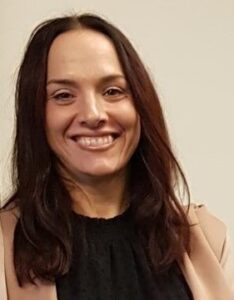Not everyone has an easy time in middle school or high school, let alone transitioning into a college or university. The issue isn’t always a matter of effort or intelligence. Sometimes, challenges reflect a disability, a skewed social or family environment or something else that prevents these students from succeeding in a conventional educational setting. Fortunately, there is a growing awareness and willingness to help these individuals overcome the roadblocks they face via the Americans with Disabilities Act (ADA) and other support mechanisms. This support has opened up new opportunities for these students to succeed in higher education and life. But they haven’t totally eliminated the problems. Schools are certainly engaged to varying degrees, but so are a growing yet still a small number of organizations. New Frontiers In Learning (NFIL) is one of them. Its work covers everything from supporting test-taking to executive functions, life skills and even relationship building and maintenance. Samantha Feinman, NFIL’s director, recently spent time with WellWell to explain the challenges and work needed to help these young people succeed and why this support is so important.
How do you define the clients that you’re working with? Do they need to have a diagnosed condition or could it be something less defined?
We work for clients who could benefit from a specialized or customized or individualized look at their learning process, maybe in middle school, high school or heading into college. Maybe it is a problem with executive function, things like time management, planning and organization, initiating things and prioritizing things. Sometimes these individuals just don’t respond well to a conventional learning format and that might not be because of any disability at all. It might be because they haven’t been exposed to certain things, it could be because they’ve had a lot of support throughout their lives, it could be a diagnosed disability, it could be a mental health issue, it could be substance abuse issues, it could be a variety of different things that are interfering with their ability to access the curriculum and demonstrate knowledge. But it doesn’t necessarily have to be any sort of a form of diagnosis.
Does social or family environment come into play?
We certainly see that a lot. Maybe kids with no necessarily diagnosed disability but their lives have been micromanaged at such a high level for such a long time that they don’t even know they have to do anything for themselves. So yeah, absolutely. It’s almost like that failure-to-launch category. One of the things I talk about a lot when I do workshops and presentations on the transition to college is that you need to teach your children how to do things and stop micromanaging and doing everything for them. When they go to college, nobody is going to do that.
It sounds like these challenges can create a vicious or self-perpetuating cycle.
Well, another thing we see a lot in our clients is something called a fixed mindset. They feel that no matter what they do, they aren’t going to be good at it, so why bother trying? They’re used to failing at things but don’t really understand why. They’re failing at things because they don’t have the skills to do it. But if they work on the skills with somebody, they can be successful if they incorporate those skills into their daily routine. That’s what we try to do with them. We’re trying to help them reframe how they look at things and come up with some strategies that will help to remove the barriers.
There now seems to be an increase in people dealing with these conditions getting into college. Is that a misconception?
I think that a couple of things are in play. Let’s use autism as an example. Over the years we’ve seen a steady increase in how many individuals are diagnosed with autism. Well now, with advances in the educational system, we see opportunities for individuals with learning, mental health issues, etc., to have more opportunities to be successful in college than in the past.
How important is it for a client to recognize they have a problem or face a challenge?
Our job is not to diagnose anybody, we are not neuropsychologists or clinical psychologists but certainly, we’ve had clients that come in that say, “I’m doing fine in school. I don’t need to work with anybody.” And meanwhile, they’re failing all their classes. There’s a certain disconnect there. So, we have to dive into the work and work with them on the causes. But for sure there have been plenty of times when clients will represent in one way and the truth is very different.
Does it take a special kind of person to do this work and connect to people facing these types of challenges?
100 percent. There are certain things about what we do that you can’t teach people to do. Being able to develop relationships with other human beings is a very specific skill. When I used to teach teachers, I always used to say to them, “It’s one thing to know math and it’s one thing to know the history but it’s another thing to be able to teach somebody history or math.” Just because you know the math doesn’t mean that you can teach it to other people very well. You have to be able to connect with other people. That’s your foundation before you can get down to the actual work.
Are colleges and universities generally supportive of these students?
It varies from school to school, but every university has to make it accessible to all students with reasonable accommodations based on the ADA. A college is not required to seek out those students nor are they required to be the ones to implement support. The students have to be the ones to advocate and request an accommodation, and provide documentation that supports their use of accommodation and if they’re approved for accommodation, the students are responsible for being the ones to initiate working with the office of disabilities services on campus in order to actually use those accommodations. That’s a big challenge for many of our clients. Seeking out and asking for the help that’s available. The university is only responsible for making it accessible. Everything else is the responsibility of the student.
What’s the biggest misconception about this process?
One of the things I hear from our clients all the time is that they don’t want to feel different from anybody else. They really just want to feel like a regular student. So, sometimes this leads to the misconception that what we are doing is compromising the curriculum. We’re not. What we’re doing is helping the students to learn how to do the same work everybody else is required to do, they’re just learning it in a different way. So, we’re not changing the expectations of the students, we’re just changing the way in which they approach it.
 About Samantha Curiale-Feinman
About Samantha Curiale-Feinman
Samantha Curiale-Feinman, MS.Ed., TSHH, is the director of New Frontiers In Learning, an executive coaching organization that works with students and other individuals. She has a master’s degree in special education and is a licensed speech therapist and special educator. Her professional experiences include speech therapist, special education teacher and adjunct associate professor at the School of Education at Pace University. She has supported clients with various learning disabilities at the secondary and post-secondary levels, as well as consulted with staff, clients and families to assist in the transition process. Ms. Curiale-Feinman sat on the Executive Board of CHADD of Nassau County and has acted as the Co-President of the Long Island Professionals ADHD Consortium.
To learn more visit www.nfil.net












